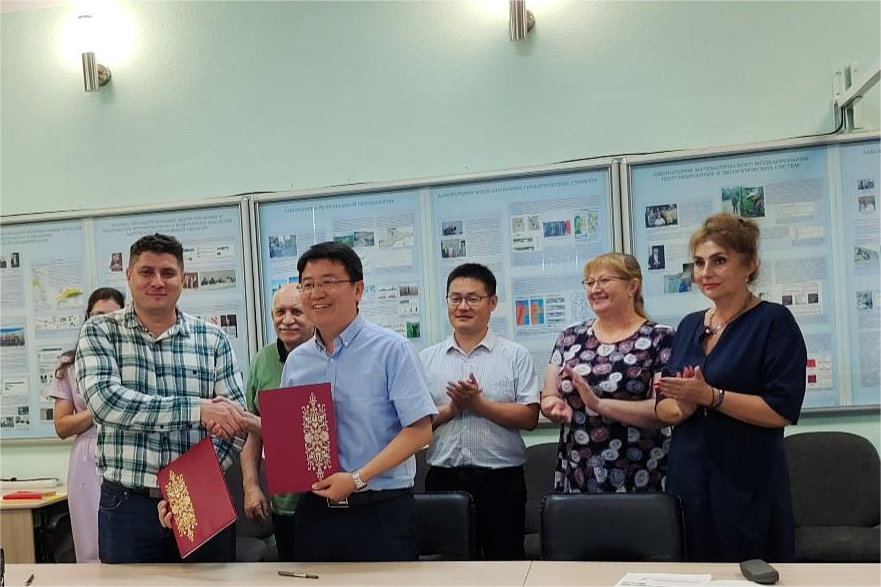From August 13 to 27, Prof. WANG Juanle and his team from Institute of Geographic Sciences and Natural Resources Research (IGSNRR) carried out academic exchanges and field trips in the Far East region of Russia to implement tasks of the ANSO collaborative research project entitled "Optimal Allocation of Cultivated land Resources in Heilongjiang transboundary watersheds for SDG2 (Zero Hunger)". The team visited its collaborating organizations, including the Institute of Pacific Geography of the Far Eastern Branch of the Russian Academy of Sciences, the Institute of Water and Ecological Problems of the Far Eastern Branch of the Russian Academy of Sciences, and the Institute for Complex Analysis of Regional Problems of the Far Eastern Branch of the Russian Academy of Sciences. The joint project team also carried out surveys of cultivated land in the basin with Russian experts.
During the visit to the Institute of Pacific Geography of the Far Eastern Branch of the Russian Academy of Sciences, Chinese and Russian scientists introduced their scientific research achievements to each other, discussed and shared the water body of Xingkai Lake from 1990 to 2020 as well as the distribution of agricultural cultivated land in the neighborhood. The two sides analyzed and exchanged scientific issues such as water body change of Xingke Lake and the distribution and change of cultivated land in Vladivostok region.
During the visit to the Institute of Water and Ecological Problems of the Far Eastern Branch of the Russian Academy of Sciences, Russian scientists introduced the situation of climate change, flood disasters, land cover types in Khabarovsk, with particular reference to the distribution and monitoring of wetlands over large areas. The Russian side also shared the latest research result "Estimating Long-Term Average Carbon Emissions from Fires in Non-forest Ecosystems in the Temperate Belt".
During the visit to the Institute for Complex Analysis of Regional Problems of the Far Eastern Branch of the Russian Academy of Sciences, the project team had an in-depth discussion with scholars from the institute in the areas of food security and agricultural development, climate change response and disaster prevention and mitigation, land use and planning, ecological and environmental impact assessment, and mineral resources development, etc. The meeting ended with a memorandum of cooperation for the next five years signed by both parties.
The project team also carried out fieldwork with the Russian collaborators together along the Amur River in the Russian Far East, with a focus on regions of the Vladivostok, Khabarovsk and Birobidzhan. Both teams collected first-hand data on land cover and agricultural soil samples, and gained an in-depth understanding of the local agricultural disaster situation, contributing to providing policy recommendation to local government regarding disaster prevention and mitigation.
MOU signature in the Institute for Complex Analysis of Regional Problems of the Far Eastern Branch of the Russian Academy of Sciences
Source: Professor WANG Juanle, Institute of Geographic Sciences and Natural Resources Research, Chinese Academy of Sciences (IGSNRRCAS)

